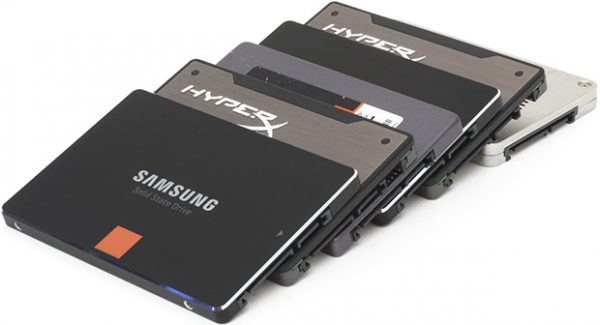The SSD or Solid State Drive isn’t exactly a new term. SSDs have been on the market for quite a few years now, but not a lot of people know what they do. Essentially, SSDs are an upgrade over the older HDD (Hard Disk Drive), and they offer faster boot times, and faster processing speeds but at a substantially higher cost.

Unlike your traditional hard disk drives, an SSD uses NAND flash memory, which can last for years on a stretch. But is it exactly worth the extra bucks for real-life performance? Let’s find out.
Read: Solid State Drive vs. Hard Disk Drive.
Do you need an SSD or Solid State Drive?
There are multiple reasons why you might want to choose an SSD over a standard HDD.
Laptops might take get bumped around when you travel
If you travel a lot with your laptop, chances are your computer will get bumped off in different places when you carry it around. It is better to have a machine that sports an SSD to know that you are protected with a sturdy drive when you get bumped.
Mobility is key
Another benefit of an SSD is that it is much more portable and mobile compared to the traditional HDD. The SSD ends up saving space by including other hardware in the laptop and even reduces weight and thickness. SSDs also require less power, so your laptop battery should last longer.
Boot times are lowered
And finally, boot time. If you have been a Windows PC owner for the longest time, you surely have felt the pain of waiting for your system to boot up after a long time. Using an SSD, especially for booting up Windows 11/10 will help you notice the sudden changes in the time taken to load all your apps on the desktop.
So, now that you have decided that you want an SSD for your machine, it’s time to get a bit technical.
Read: Hybrid Drive vs. SSD vs. HDD.
The right type of memory for your SSD
- Single-Level Cell (SLC) – SLC memory is practically the faster type of memory on any SSD. It is also the most precise when it comes to reading and processing data, which makes it better for your system’s battery life. But the worst part is that SLC is also the most expensive of the lot and the SSDs with SLC are usually used in Enterprise editions.
- Multi-Level Cell (MLC) – MLC memory has a larger amount of storage without an increase in physical size, is available for a lower price than SLCs, but, in turn, has slower and less precise Write and Read speeds. They also suck in more power and are less durable compared to the SLCs.
- Triple-Level Cell (TLC) – TLC is the cheapest of the lot and thus quite popular in the consumer segment. However, it also has the lowest and least precise write and read speeds. Due to increased power consumption, it is also much less durable compared to the other two memory variants.
This was a brief summary of SSDs and how to choose the right one. Please let us know if you have any suggestions below.
Do let us know if you have any observations to make.
Read: SSD Optimization Tips for better performance.
Does triple level cell performace a lot better than a regular hard disc?
Yes, it definitely does.
It isn’t just a little faster on boot, or desktop applications. An SSD just destroys any 7200RPM HDD on performance. I boot Win 10 in 4 seconds on my SSD! Also, that point about getting jostled around is valid. Since any HDD spins and a SSD does not, the SSD is going to hold up longer and data loss is less of fear with the SSD. I would say to anybody right now, upgrade to a SSD, especially, especially, if you are running 10.
so how do you know how to compare the hard drive storage to the solid state storage??
It is more expensive, gig to gig. But the prices are coming down on m.2 SSD and NVME SSD drives. With cloud storage, external hard drives and similar stuff, I can’t understand why people want these 1 plus terabyte drives on their computers. I think, given the complexities of Windows 10, that it is foolish to keep MASSIVE storage on your main computer. You have the propensity to lose data that way. Running a 512 GB SSD with an external terabyte HDD is the way to go IMHO. And use cloud storage also. Even if you are running Win 7 or 8, an SSD is a good drive to use given the speed.
thank you Matt, I really do appreciate your taking time to answer my question. I am beginning to look for a new laptop to replace a desktop and can not figure how to even look for the SSD. So you basically keep your files on an external drive (or cloud) and keep the machine free of the clutter. Right?